How to Teach Honesty Using Simple Games and Activities?
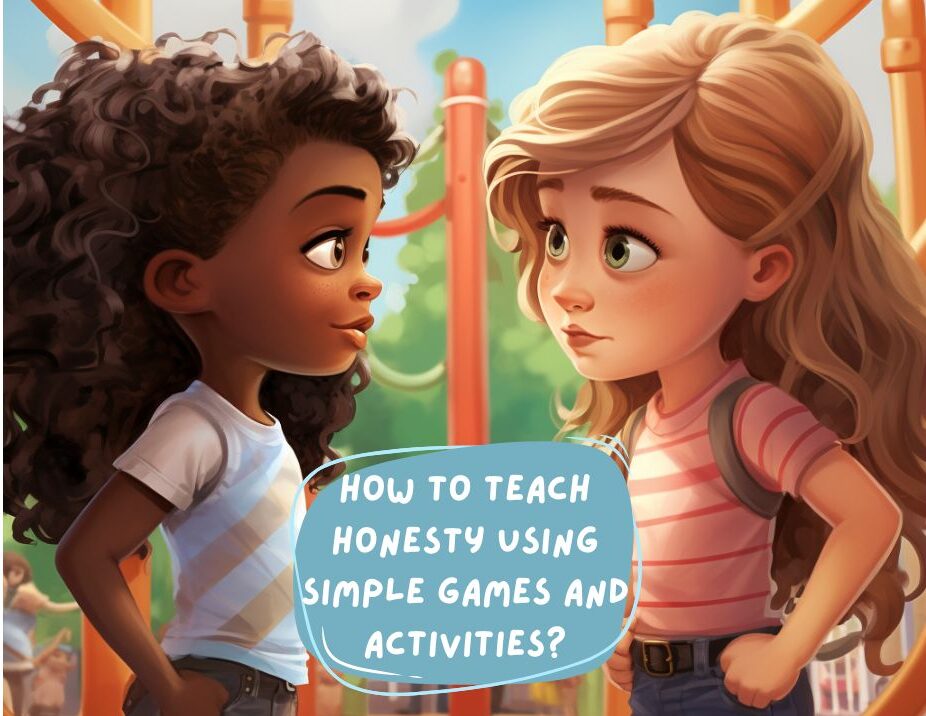
Children are crazy about playing various games. The reasons for that are clear. Games bring pleasure and relieve them of doing household chores. Plus, they are fun and exciting. Modern pedagogics does its best to involve some educational moments in games. The good news is that it works well. For example, family activities serve as helpful trust-building exercises.
Games are the language that we can use to communicate with kids and transfer ideas. So, why not make use of it?
Many honesty games also rely on a child’s ability to listen carefully and follow rules — skills that can be gently developed through stories like Listening is My Superpower, which helps children practice attention, understanding, and respectful communication.
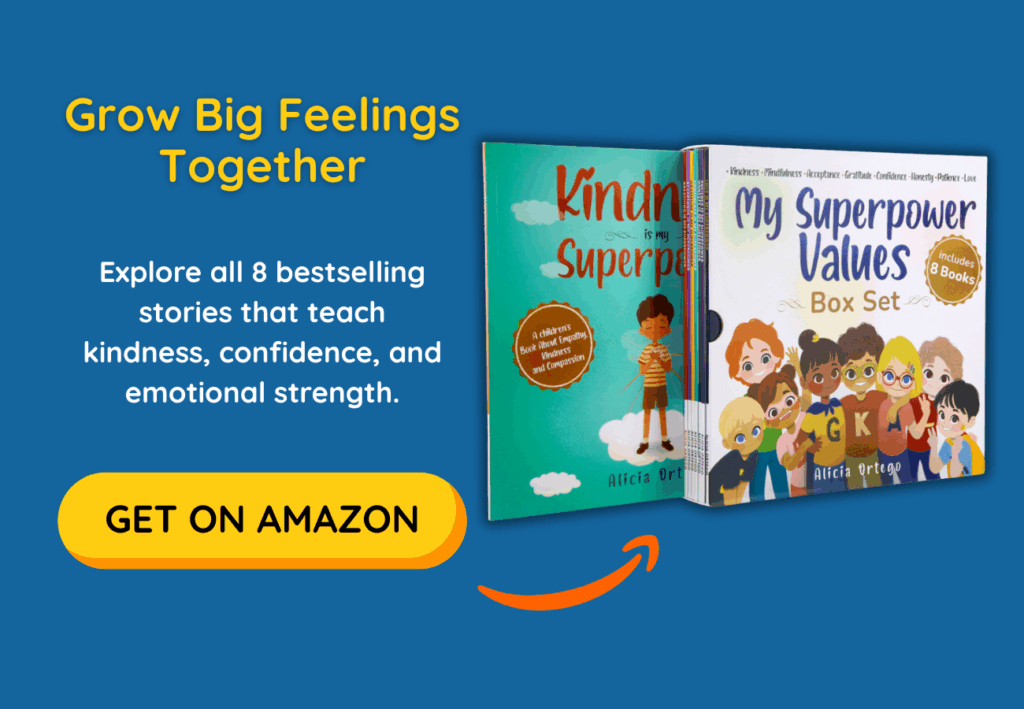
Why do you need to practice honesty activities?
You can look through lots of research data on psychology and successful parenting. Moreover, ordinary parents can share their experiences as well. Some you can find in these books.
One typical instruction is that you should talk with kids in their language. That is, as you remember, a game. Honesty worksheets for elementary students are exactly what you need. If your kids don’t tell lies, practice it all the same. Some honesty activities are adult-oriented as well. Everyone feels vulnerable when telling the truth. Let’s forget about that uptight feeling.
Do Children Need to Learn Honesty as a Virtue?
Some parents may say that integrity is a burden for naive people with no career prospects. That’s partly true, as some higher-ups get their promotions by foul means. That’s not a reason to look up to those people, though. Honesty is a true virtue.
Telling the truth is good for mental health. Truth is an integral part of a healthy relationship. Finally, honest individuals do get success. They show themselves to be truthful persons worthy of promotion.
Honesty Games for Kids of All Ages
Honesty is a skill of great importance. Even UNICEF determines it as a part of well-being. One of the participants of its program reports positive changes that concern integrity. She believes it’s easier for her now to live without telling lies. That is one more proof that one can learn it.
Best Honesty Activities
The Well of Honesty
It’s a kind of group game. Adults are also welcome. Take a small container and fill it with water. Then, ask a kid to drop a nickel into the center. Explain to them that nickel symbolizes lies. The task is to cover it with coins. It looks like apologizing for telling a lie. It’s quite tricky. You need many coins or, in other words, apologies to cover the nickel.
Take turns and drop a coin into the container. The more water it contains, the more difficult the task. Make sure children understand the idea. The container is our soul. Once someone has betrayed us, resentment appears. It takes a lot of words of apology to hide the hurt in the depths of our souls.
Discuss relevant issues after the game. Here are some questions to chew on:
- Is it easy to make someone forget about the insults caused by being dishonest?
- Have you ever deceived someone? (Do not insist on answering the question because it can hit hard).
- Has anyone deceived you? What were your feelings?
- What would be your reaction if that person had told you the truth?
Honesty Coloring Pages
One more way to learn integrity is to speak about it. You may provide real-life examples and focus on people with wounded feelings. Use honesty worksheets for kids to sustain a conversation. Thematic drawings will help go into the question. One does not have to think about the storyline or apply any techniques. The mind relaxes as much as possible. The pictures themselves show that there is nothing wrong with being honest.
Support these statements with your words of encouragement. Say that:
- Truth is always better than lies;
- You will not stop loving your child, even if you find out that he did something wrong;
- You will not blame him for doing bad things;
- You will not punish them for a bad deed.
Practice painting the “I Can Be Honest Coloring Page” occasionally. Remembering your child about the importance of telling the truth is important. Plus, you will develop a growth mindset in your children.
Download FREE Honesty Coloring Pages PDF
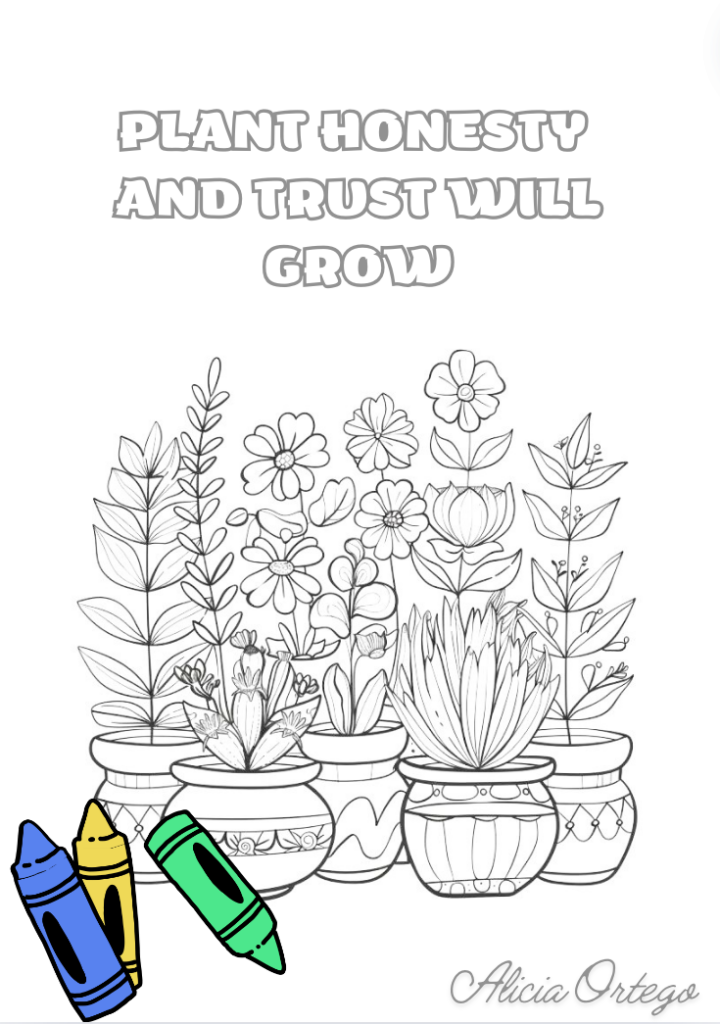
Chocolate Peanuts
Give a chocolate peanut to each member of the group. If you are a parent, then give a peanut to your child. After the kids have eaten it, ask them to give it back. They will feel a little bit confused. Explain to them that it is hard to take the lie away from one’s soul once one has taken the lie. And one cannot get rid of it easily. Then, you may ask them to work on the Tell the Truth Coloring Page. As an option, discuss truth-related issues such as:
- Do you like this game?
- Is it possible to justify a lie? Why not / yes?
- Why is it important to be honest?
- Is it right to hide the truth from someone for a good reason?
- Why is it so hard to tell the truth even for adults?
- To what consequences can lead a dishonest lifestyle?
- What are the benefits of integrity?
See How the Wind is Blowing
Combine this activity with working on an honesty coloring page. Use painting as a way to focus on the topic. Propose a child to color the pages before moving on to this activity. Make prior preparations. Surf the net to find confusing stories about truth issues. Retale them to kids and try to find a solution together.
Remind your kids that being honest means being kind to oneself and others. If you want to teach your kids kindness, introduce them to “Kindness Is My Superpower“.
Encourage children to voice their opinions. Your goal is to reach a reasonable conversation. Apply brainstorming techniques to strengthen the process. Teamwork is greatly beneficial for kids. Also, honesty is one of the qualities of a good friend.
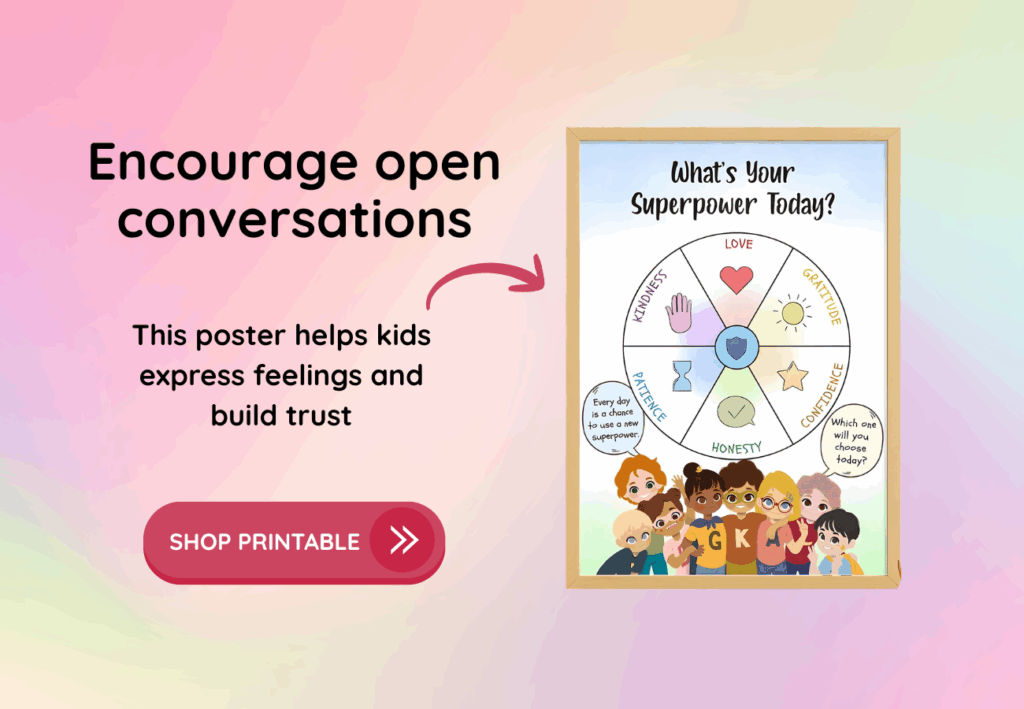
Conclusion
Integrity is vital, and that is beyond doubt. Keep in mind three key ideas:
- Practice activities regularly;
- Use honesty coloring page whenever possible;
- Be reasonable and accept that your children can lie, but the problem is manageable.
Follow the plan and develop the habit of honesty in your children.
More articles
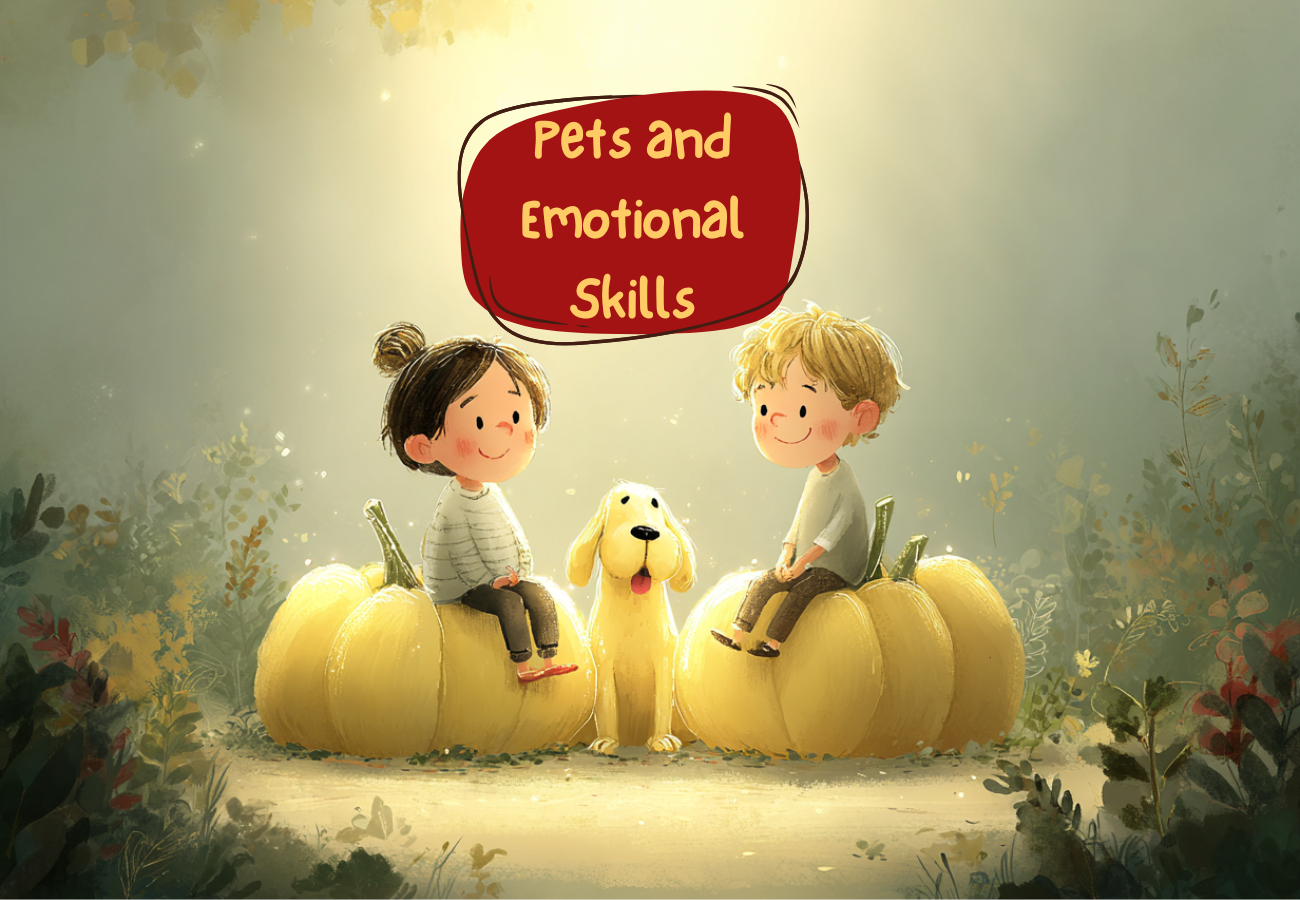
How Pets Help Children Practice Kindness, Consistency, and Calm
Daily life offers countless small opportunities for children to learn emotional skills, especially through routines that feel safe, meaningful, and consistent. While parents and educators often focus on teaching kindness through words and lessons, children tend to learn best through lived experience. One gentle and powerful way this learning happens is through caring for a […]
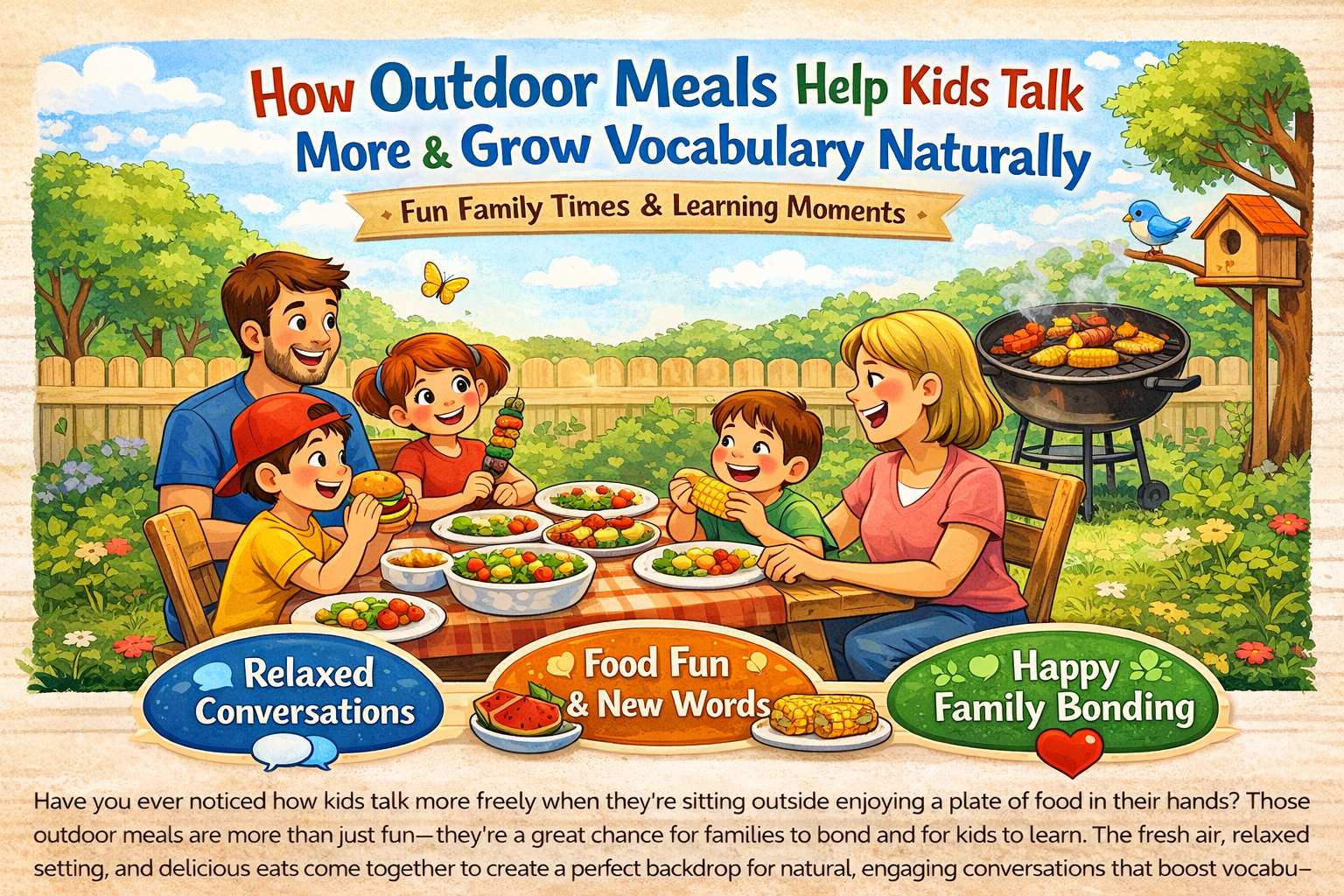
Using Outdoor Meals to Spark Conversation and Vocabulary Growth
Have you ever noticed how kids talk more freely when they are sitting outside with a plate of food in their hands? Outdoor meals have a special kind of warmth. The open air, the relaxed mood, and the simple joy of eating together help children speak naturally. It becomes a happy time where new words, […]
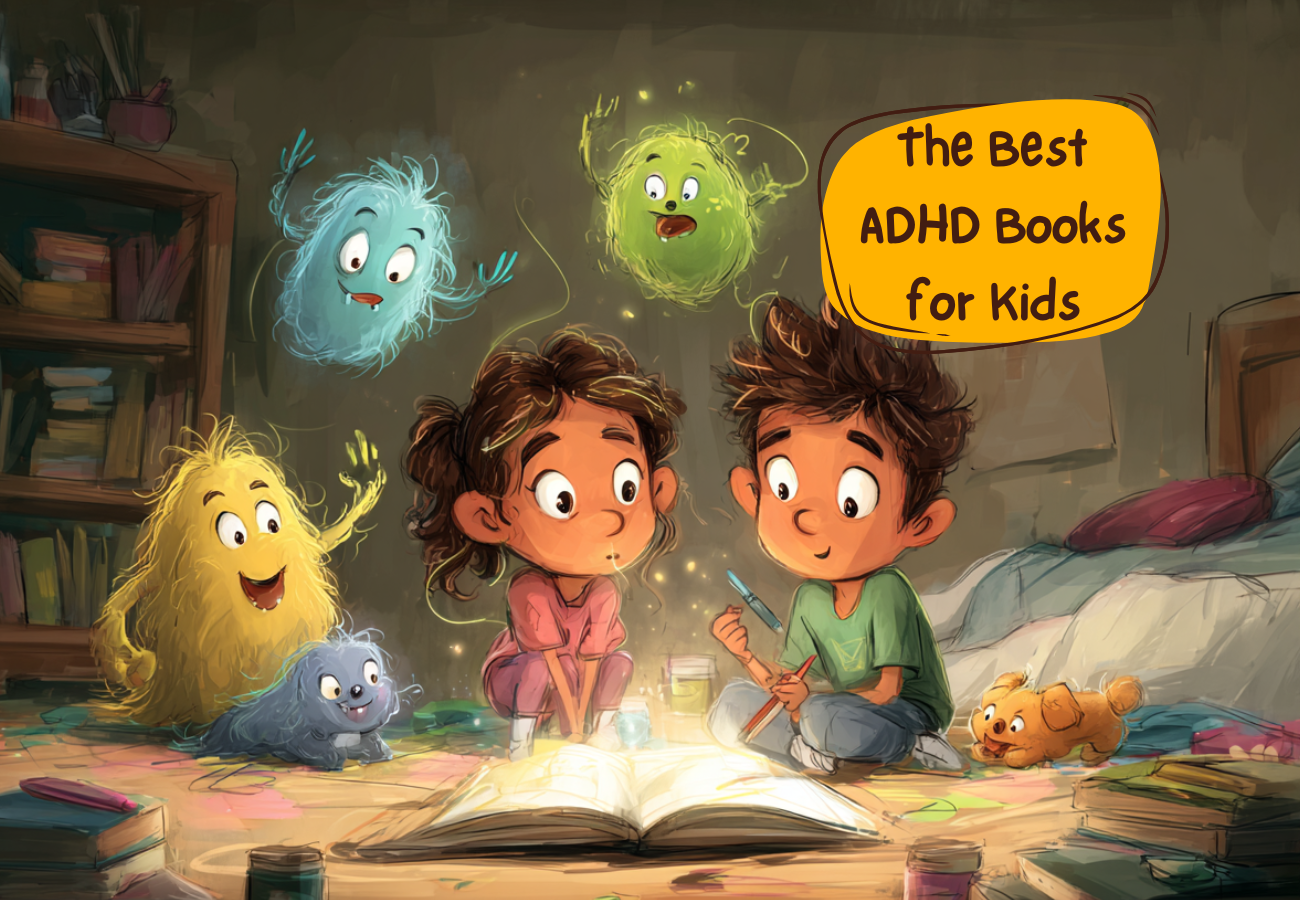
The Best ADHD Books for Kids: Supportive Reads for Children and Parents
Supporting a child with Attention-Deficit/Hyperactivity Disorder (ADHD) starts with understanding their world—how they think, feel, and navigate daily challenges. One of the most effective tools for building empathy, resilience, and confidence is reading. The right ADHD books for kids help children feel seen, understood, and empowered. At the same time, high-quality books for parents of […]



